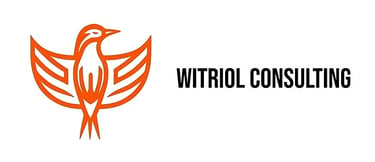Leveraging Technology to Improve Contract Performance in Consulting
In the dynamic world of federal contracting, success hinges on more than just winning a bid—it’s about delivering on promises efficiently and effectively. Contract performance is a critical metric that not only determines project outcomes but also impacts long-term relationships with government agencies. As demands for transparency, compliance, and efficiency increase, leveraging technology has become indispensable for federal contractors. This blog explores the key ways technology can enhance contract performance, reduce risks, and create value for both contractors and government clients.
DATA DRIVENMICROSOFTEQORGANIZATIONMENTORMANAGEMENT CONSULTINGMARKET ECONOMYCONSULTINGMERGERSGROWTHLEADERSHIPACQUISITIONSCLIENT RELATIONSHIPSCYBERSECURITYMIXED ECONOMYGOVERNMENT CONTRACTSFEDERAL CONTRACTINGMARKETING STRATEGYTEAMWORKLEAN CONSULTINGCOMPLIANCESUCCESSTECHNOLOGYAIFEDERAL CONTRACTS
Shaun Witriol
12/7/20244 min read


Leveraging Technology to Improve Contract Performance for Consulting
In the dynamic world of federal contracting, success hinges on more than just winning a bid—it’s about delivering on promises efficiently and effectively. Contract performance is a critical metric that not only determines project outcomes but also impacts long-term relationships with government agencies. As demands for transparency, compliance, and efficiency increase, leveraging technology has become indispensable for federal contractors.
This blog explores the key ways technology can enhance contract performance, reduce risks, and create value for both contractors and government clients.
The Evolving Landscape of Federal Contracting
The federal contracting ecosystem is undergoing rapid changes. Agencies are increasingly demanding faster turnarounds, data-driven decision-making, and enhanced accountability. Contractors face challenges like:
Managing complex requirements under tight deadlines.
Navigating compliance with stringent federal regulations.
Optimizing resource allocation in a competitive landscape.
Technology provides a pathway to tackle these challenges while unlocking new efficiencies.
Key Technologies That Boost Contract Performance
1. Project Management Software
Modern project management tools like Microsoft Project, Asana, and Smartsheet enable contractors to plan, execute, and track projects more effectively.
Benefits:
Improved visibility into project milestones and deliverables.
Enhanced communication among team members and stakeholders.
Real-time updates for quicker decision-making.
Real-World Application:
A contractor delivering IT services for a federal agency used Asana to streamline task assignments, ensuring timely delivery and maintaining compliance with the contract’s Service Level Agreements (SLAs).
2. Data Analytics and Business Intelligence Tools
Data-driven decision-making is a game-changer in contract management. Platforms like Power BI and Tableau offer actionable insights through data visualization and predictive analytics.
Benefits:
Identifying bottlenecks in workflows.
Forecasting potential risks and resource needs.
Measuring contract performance metrics in real-time.
Example:
A construction contractor used Tableau to monitor project KPIs, enabling them to address delays early and finish under budget.
3. Enterprise Resource Planning (ERP) Systems
ERP systems like Deltek Costpoint and SAP are tailored for contractors managing federal projects. They integrate core business functions such as finance, procurement, and compliance.
Advantages:
Centralized data management.
Simplified compliance with regulations like FAR and DCAA requirements.
Streamlined billing and financial reporting.
Case Study:
A mid-sized contractor adopted Deltek Costpoint to manage multiple contracts simultaneously, improving resource allocation and meeting all audit requirements seamlessly.
4. Contract Management Software
Automating the contract lifecycle can drastically reduce errors and inefficiencies. Tools like Cobblestone Software and ContractWorks simplify the management of contract terms, modifications, and renewals.
Key Features:
Automated alerts for key dates (renewals, deadlines).
Centralized repository for easy document access.
Compliance tracking to avoid penalties.
Impact:
Contractors report fewer disputes and higher satisfaction ratings from federal clients due to improved contract oversight.
5. Artificial Intelligence and Machine Learning
AI-powered tools are revolutionizing how contractors approach problem-solving and operational efficiency.
Applications:
Risk assessment: AI analyzes historical data to flag potential issues.
Document review: Automates compliance checks for federal regulations.
Resource optimization: Machine learning predicts staffing and material needs.
Example in Action:
A contractor leveraged AI-driven tools to analyze past performance data, identifying trends that helped improve bid accuracy for future contracts.
6. Cybersecurity Solutions
For contractors handling sensitive government data, robust cybersecurity is non-negotiable. The Cybersecurity Maturity Model Certification (CMMC) mandates contractors to meet specific security standards.
Technologies:
Endpoint protection platforms (EPPs).
Cloud access security brokers (CASBs).
Real-time threat monitoring tools.
Outcome:
By implementing advanced cybersecurity protocols, contractors reduce the risk of breaches, ensuring uninterrupted project execution and trustworthiness.
The Benefits of Embracing Technology
1. Enhanced Efficiency
Automation reduces manual effort, freeing teams to focus on strategic tasks. For instance, automating invoice generation and submission accelerates payment cycles.
2. Improved Compliance
Federal contracts come with strict regulatory requirements. Technology ensures adherence to laws like FAR, DFARS, and other agency-specific guidelines.
3. Better Resource Management
Advanced tools optimize resource allocation, preventing overutilization or underutilization. Predictive analytics aids in proactive planning.
4. Real-Time Monitoring
Dashboards and reporting tools provide instant insights into contract performance, enabling course corrections when needed.
Challenges and Solutions
While technology offers immense benefits, it’s not without challenges. Here’s how to address common issues:
1. High Initial Costs
Solution: Start with scalable tools and prioritize ROI-focused investments. Many software providers offer subscription-based pricing, reducing upfront costs.
2. Resistance to Change
Solution: Train teams to embrace new tools. Demonstrating tangible benefits can drive adoption.
3. Data Integration Issues
Solution: Invest in tools that integrate seamlessly with existing systems. APIs and middleware solutions can bridge gaps.
4. Cybersecurity Concerns
Solution: Partner with certified IT vendors and comply with government cybersecurity standards like the CMMC framework.
Future Trends in Technology for Federal Contractors
Looking ahead, several trends will shape the technology landscape in federal contracting:
AI-Powered Compliance: Automated regulatory updates and compliance tracking will become standard.
Blockchain for Transparency: Immutable ledgers can improve accountability in contract management.
Edge Computing: Faster data processing near the source will enhance real-time decision-making.
Sustainability Tools: Technology supporting eco-friendly operations will align with federal green initiatives.
Actionable Steps for Federal Contractors
1. Assess Your Needs
Conduct a gap analysis to identify areas where technology can improve efficiency and outcomes.
2. Build a Tech Roadmap
Outline a phased implementation plan that aligns with your business goals and budget.
3. Partner with Experts
Engage IT consultants or technology providers with experience in federal contracting.
4. Train Your Team
Invest in continuous training to ensure employees can maximize the value of new tools.
Conclusion
In the competitive world of federal contracting, leveraging technology is no longer optional—it’s a necessity. From project management to cybersecurity, the right tools can streamline operations, improve compliance, and boost overall contract performance. By embracing these advancements, contractors can deliver greater value to federal clients while positioning themselves as industry leaders.
The journey toward digital transformation may require effort and investment, but the rewards—enhanced efficiency, improved compliance, and long-term success—are well worth it.
Are you ready to unlock the power of technology for your federal contracts? Contact [Your Company] today to explore how we can help you achieve your goals.
💬 Call to Action: Like and follow Witriol Consulting on LinkedIn, Instagram, Facebook, and YouTube for more insights and strategies on effective leadership and time management.
Current Certifications
Small Local Business Enterprise (SLBE) - (San Diego)
Local Small Business Enterprise - (LSBE) - (Los Angeles)
Minority Owned Business (MBE) - (San Diego and Los Angeles, Federal)
Small Business (Micro) - (California)
Disadvantaged Business Enterprise - (California, Arizona, Oregon, Hawaii)
Small Disadvantaged Business - (Federal)
Asian Pacific Business Enterprise - (Federal)
Pending Certifications
8a - (Federal)
© 2024. All rights reserved.


certifications
consultations
